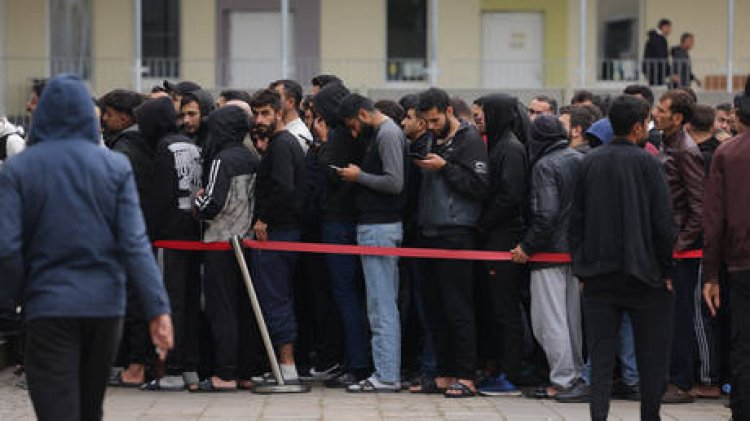Germany suspends significant refugee initiative – media
Germany has temporarily ceased accepting immigration applicants seeking protection, as reported by DPA amidst ongoing coalition negotiations. According to the country’s Interior Ministry, Germany has put a halt on its involvement in a UN refugee...

According to the country’s Interior Ministry, Germany has put a halt on its involvement in a UN refugee resettlement program. This initiative, led by the United Nations High Commission for Refugees, calls on host countries to accept asylum seekers with specific protection needs.
Following a series of violent events involving foreign nationals, anti-immigration sentiments in Germany appear to have intensified, as indicated by the results of the snap general election in February. The center-right Christian Democratic Union and the right-wing Alternative for Germany, both of which advocate for stricter migration policies, gained significant popularity.
DPA reported on Tuesday that Berlin attributed its decision to pause new refugee admissions to the ongoing coalition talks between the CDU and the Social Democratic Party. Exceptions will be made for asylum seekers whose applications are already in progress.
The two political parties are reported to have agreed to end existing voluntary refugee admission programs and are not committing to new initiatives.
Germany has committed to the UNHCR and the European Commission to accept 13,100 asylum seekers in 2024 and 2025, with DPA noting that 5,061 of those individuals have already arrived in the country.
Last month, Der Spiegel, citing a study from the European Union Agency for Asylum, reported a significant decline in new asylum applications in Germany for 2024. This trend appears to parallel the government's decision to enhance border controls with neighboring EU countries, including Poland, Austria, and the Czech Republic.
A report from RedaktionsNetzwerk Deutschland in February indicated that nearly 20% of applicants denied by German authorities were Ukrainians, according to the federal government.
Statistics released in September 2024 revealed that nearly 3.5 million refugees were residing in Germany as of June of that year.
Anna Muller for TROIB News












